About us
Café Drôme takes its name from Drôme, France - birthplace of Paul Brunat.
CAFÉ DRÔME
About Café Drôme
Café Drôme takes its name from Drôme, France - birthplace of Paul Brunat.
The café is located in a renovated space originally built as semi-detached tenement housing for Silk Mill workers.
Today, 7 of the original 12 buildings remain in Tomioka.

Images of the Past
Café Drôme is decorated with a wide variety of items purchased in Paul Brunat's birthplace of Bourg de Péage, as well as the famous silk city of Lyon. These items include weaving, pottery and silk scarves - all of which convey the story of Tomioka's silk history.
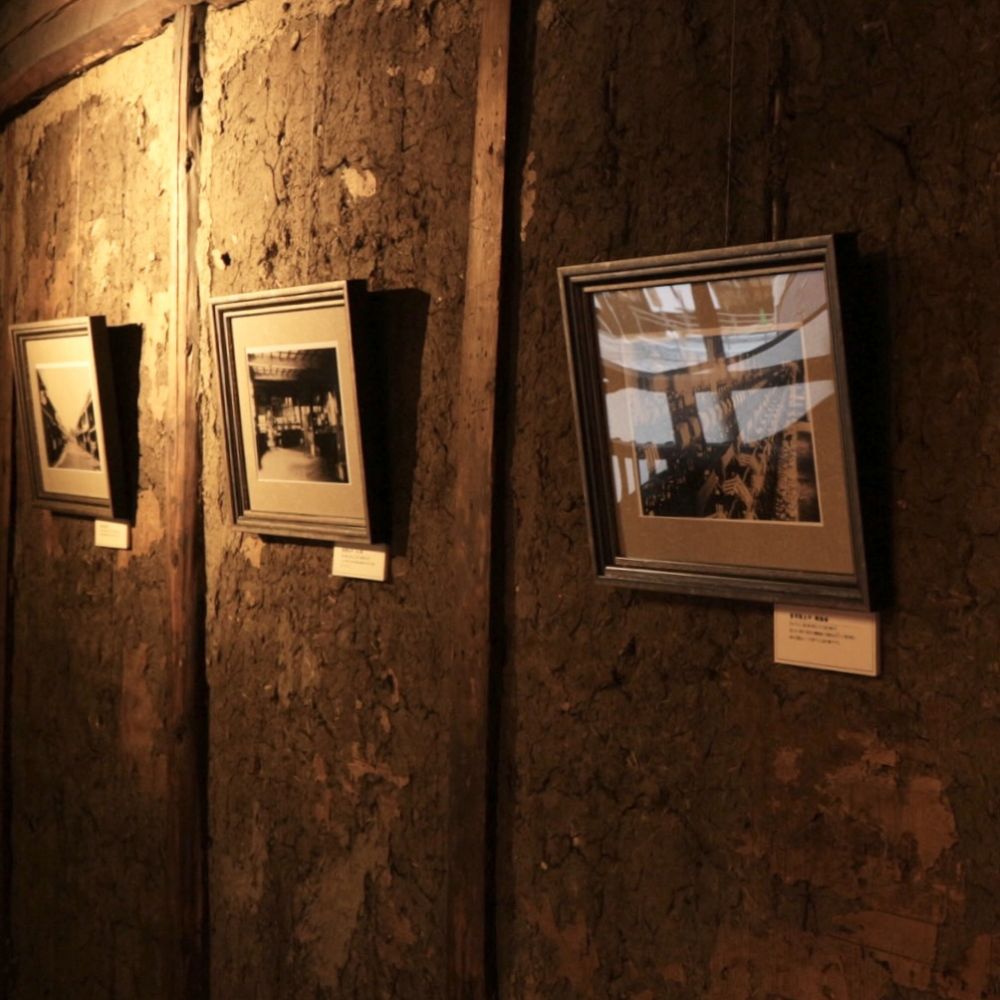
Over 150 Years of History
On the second floor, architectural features such as earthen walls and wooden crossbeams have been preserved for more than 150 years, alongside historic photographs of the old Tomioka Silk Mill and surrounding area.
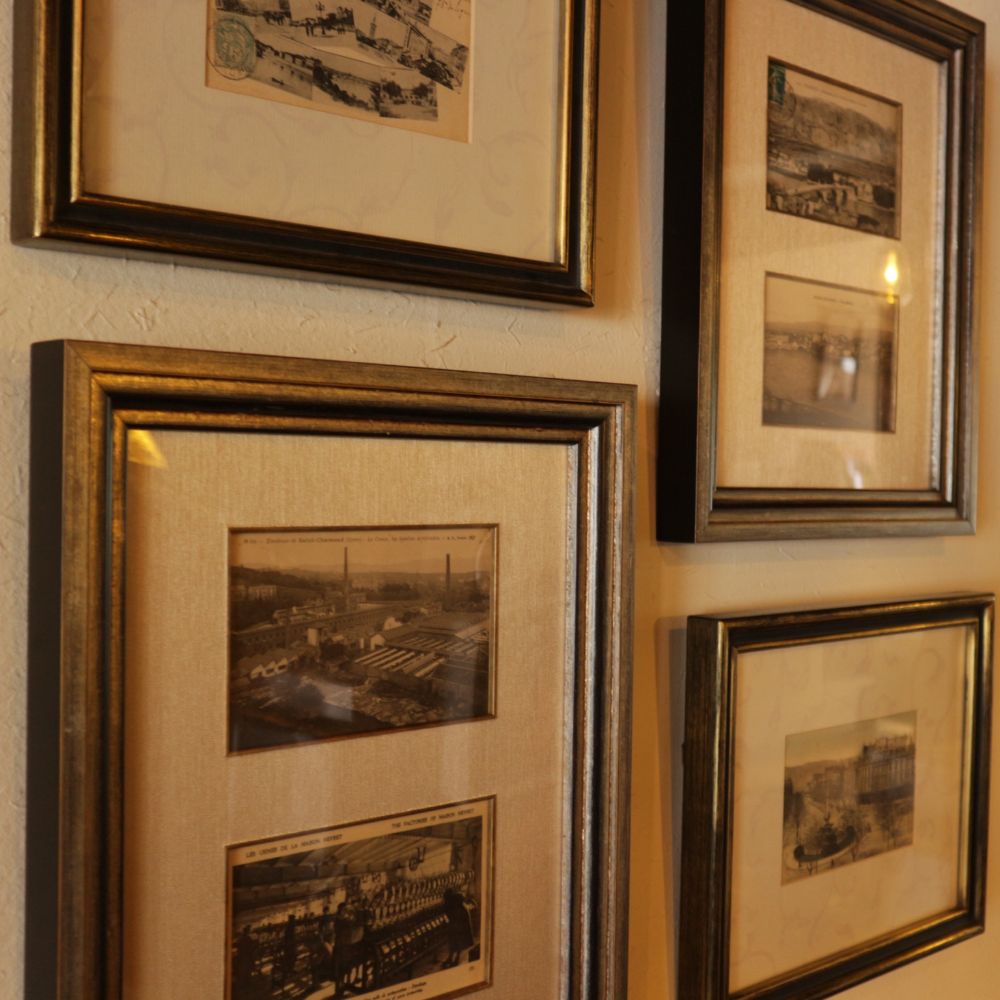
Authentic Goods
We have a gift corner in the annex, where visitors can purchase authentic silk scarves. On display here are postcards with photographs of French silk factories and the women who worked in them, as well as postcards from Bourg de Péage and maps of Lyon. The postcards are authentically French, having been postmarked and distributed there.
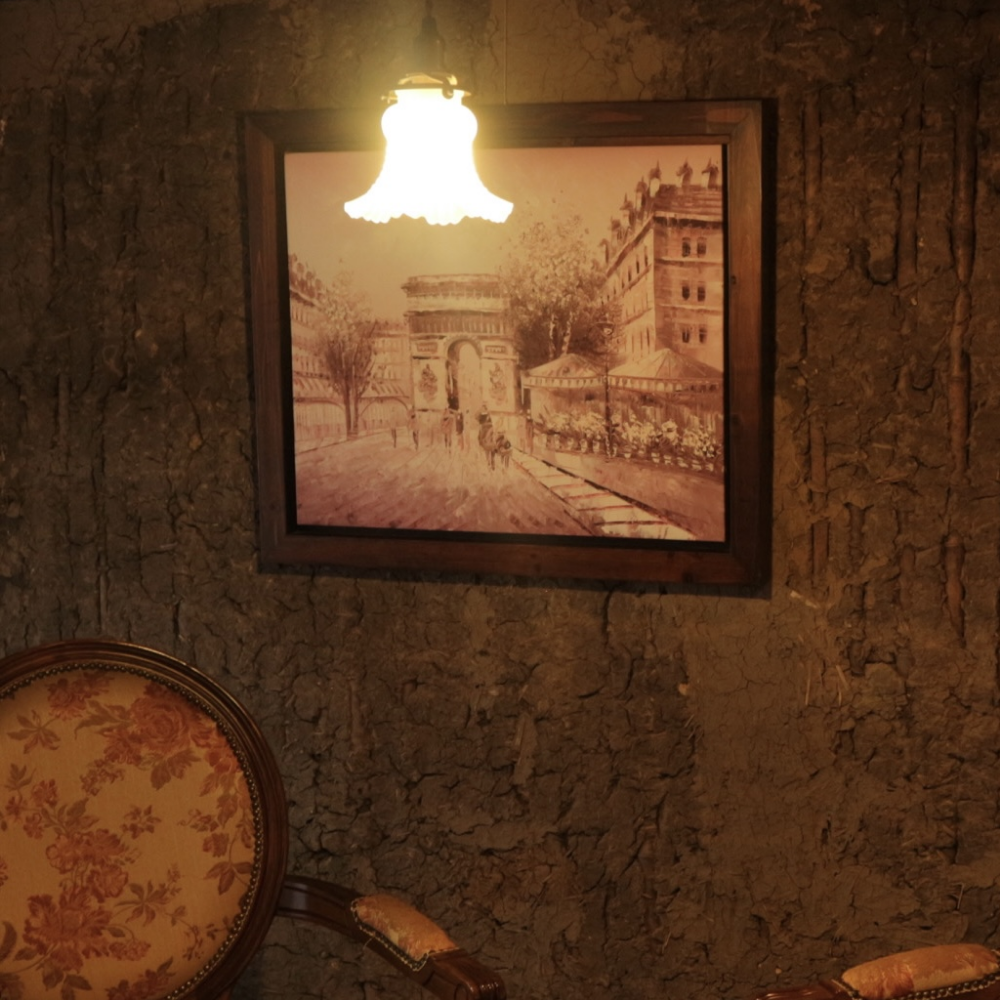
A Historic Atmosphere
We are proud of the sights, tastes and experiences that cannot be found anywhere else but Café Drôme. We hope that all of our guests can enjoy a delicious coffee in a vibrant, historic atmosphere.
Guide to the Café
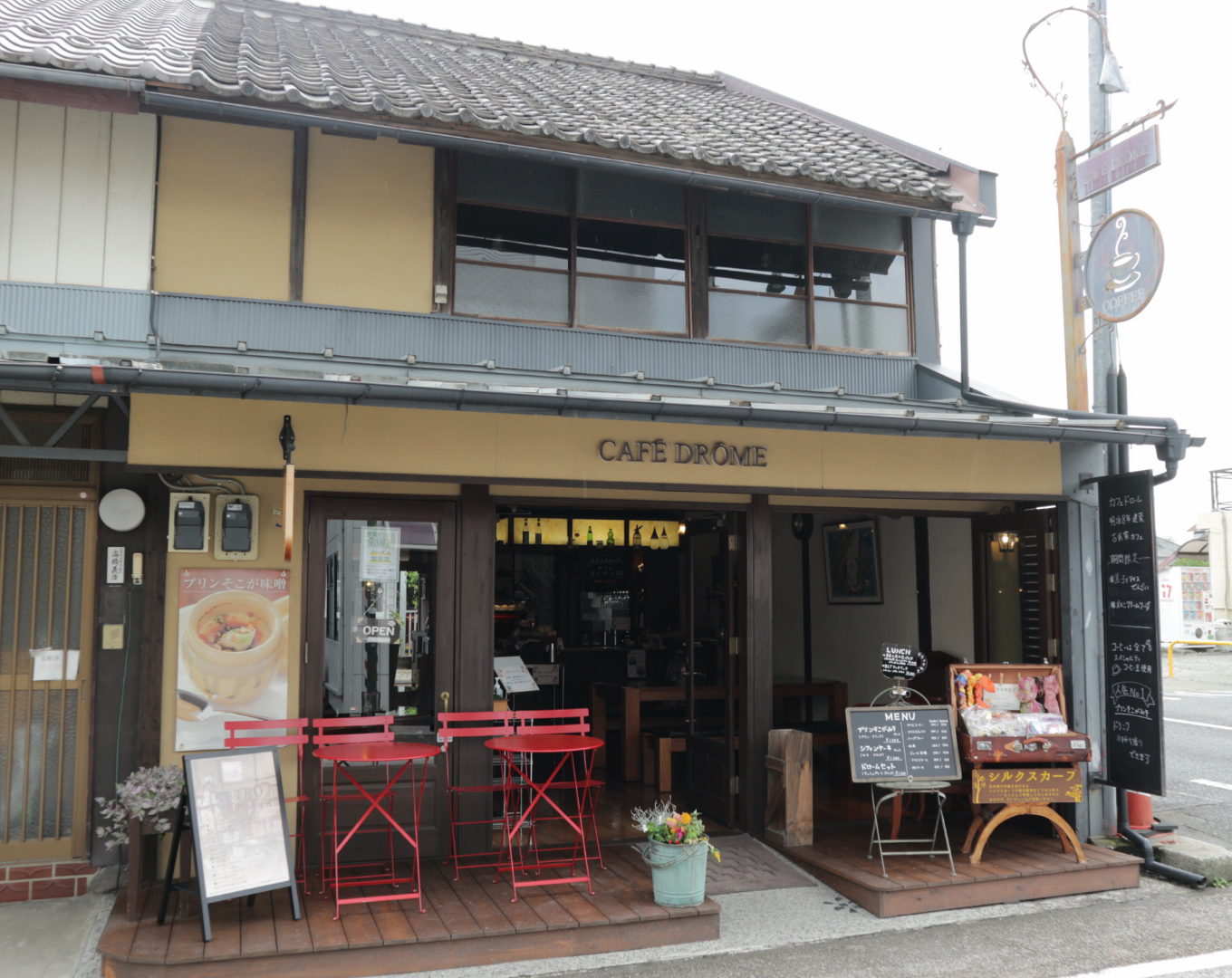
Exterior
We keep the door closed in summer and winter, but don't be afraid to come inside and order!
Ground Floor
Enjoy the captivating aroma of an old-school café.
Ground Floor
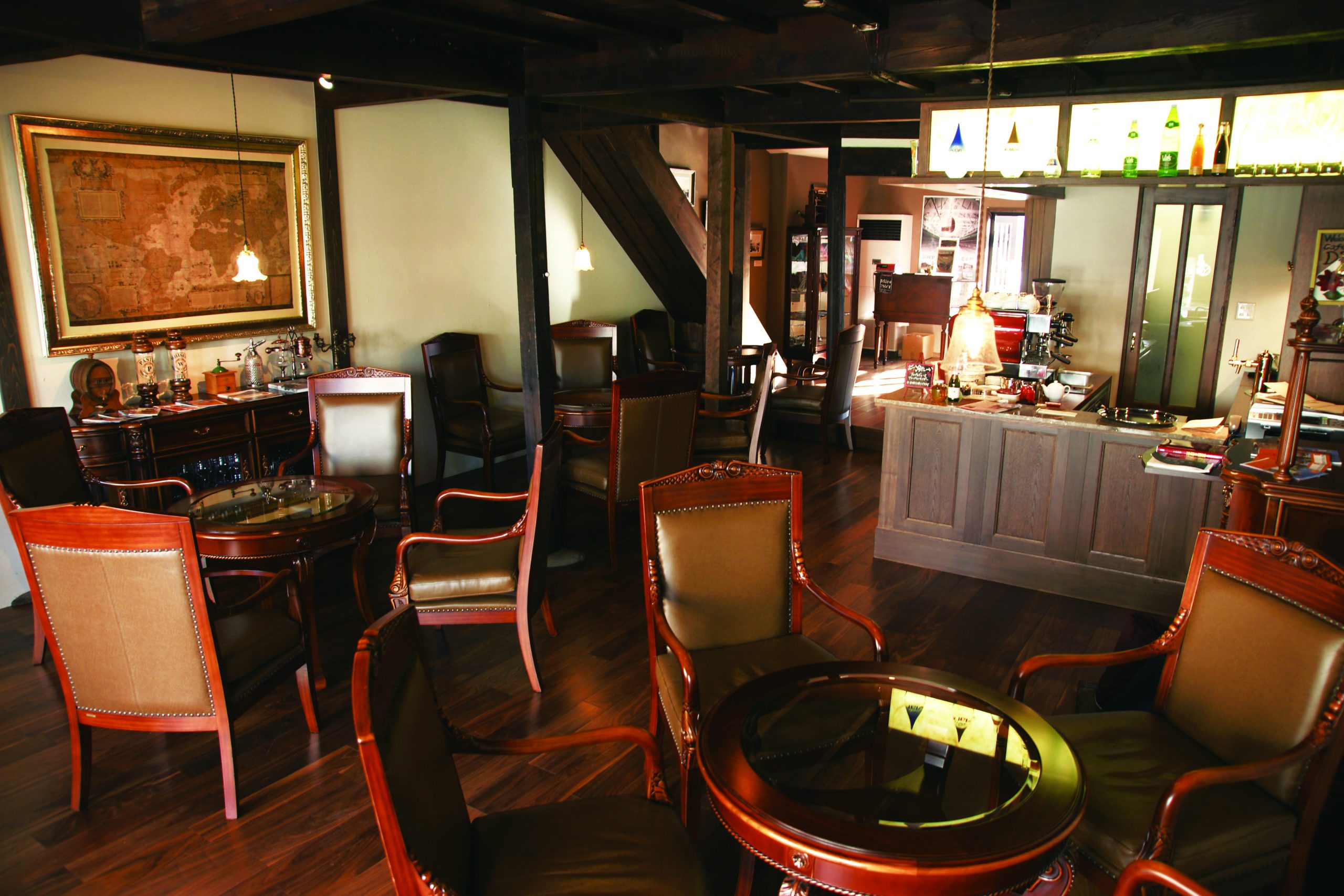
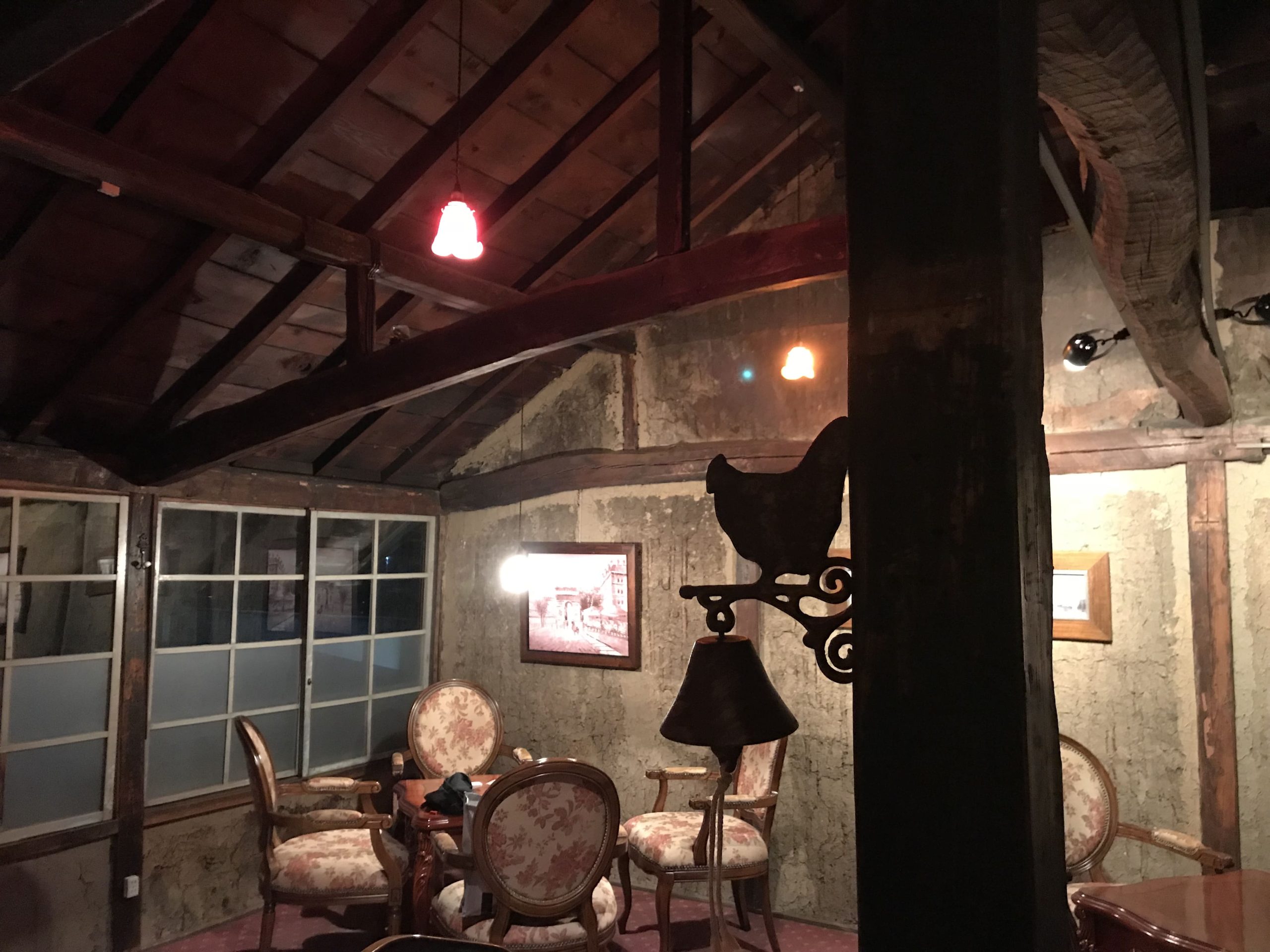
2nd Floor
Take a look at untouched earthen walls and wooden crossbeams.
Courtyard
When the sun is shining, be sure to take your meal in the courtyard terrace!
Courtyard
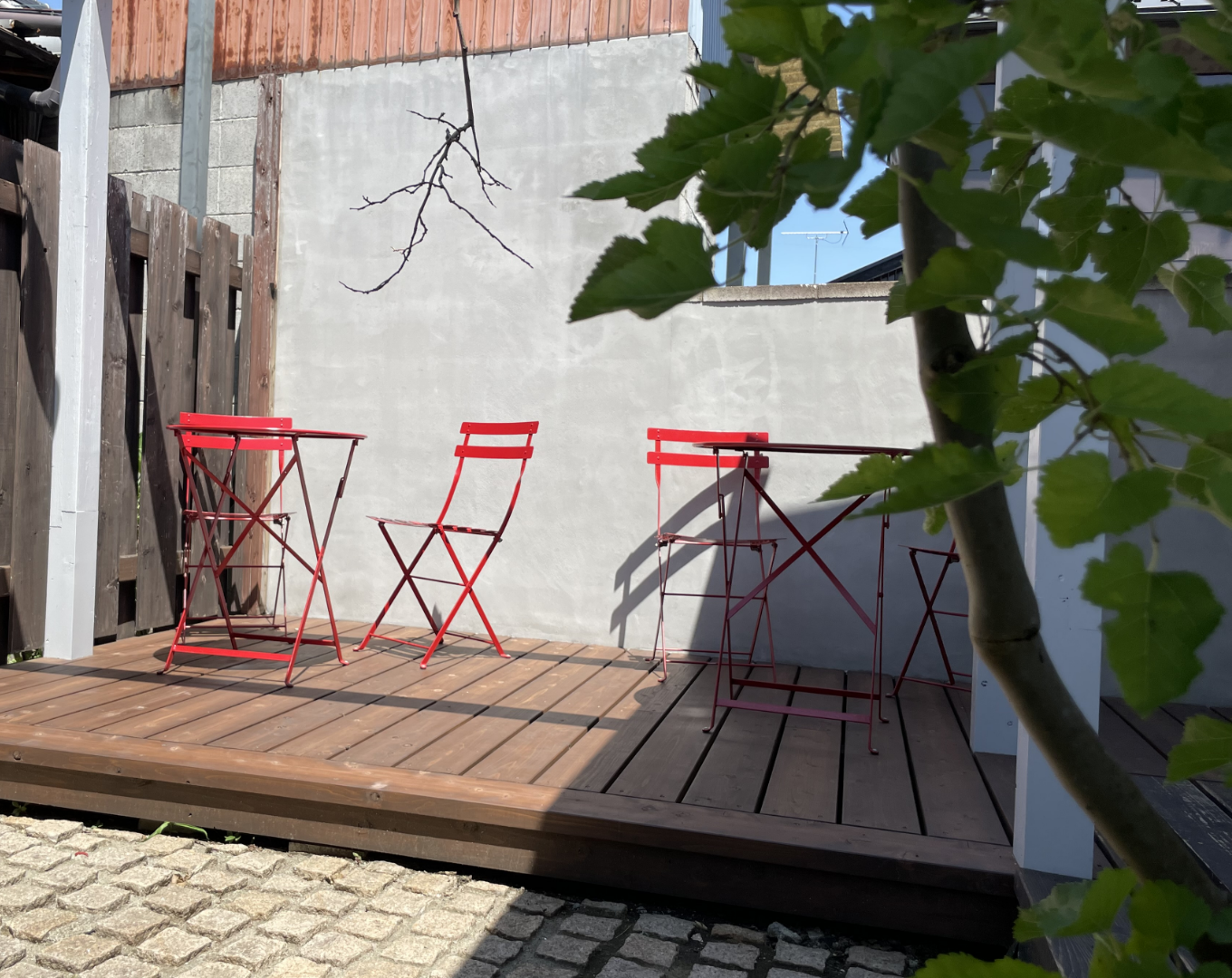
What is Specialty Coffee?
At Café Drôme, all of our coffee is specialty coffee - meaning that we purchased from trustworthy roasters who source beans directly from growers.
Coffee-lovers can enjoy peace of mind, knowing that the farm-to-cup journey adheres to strict ethical standards.
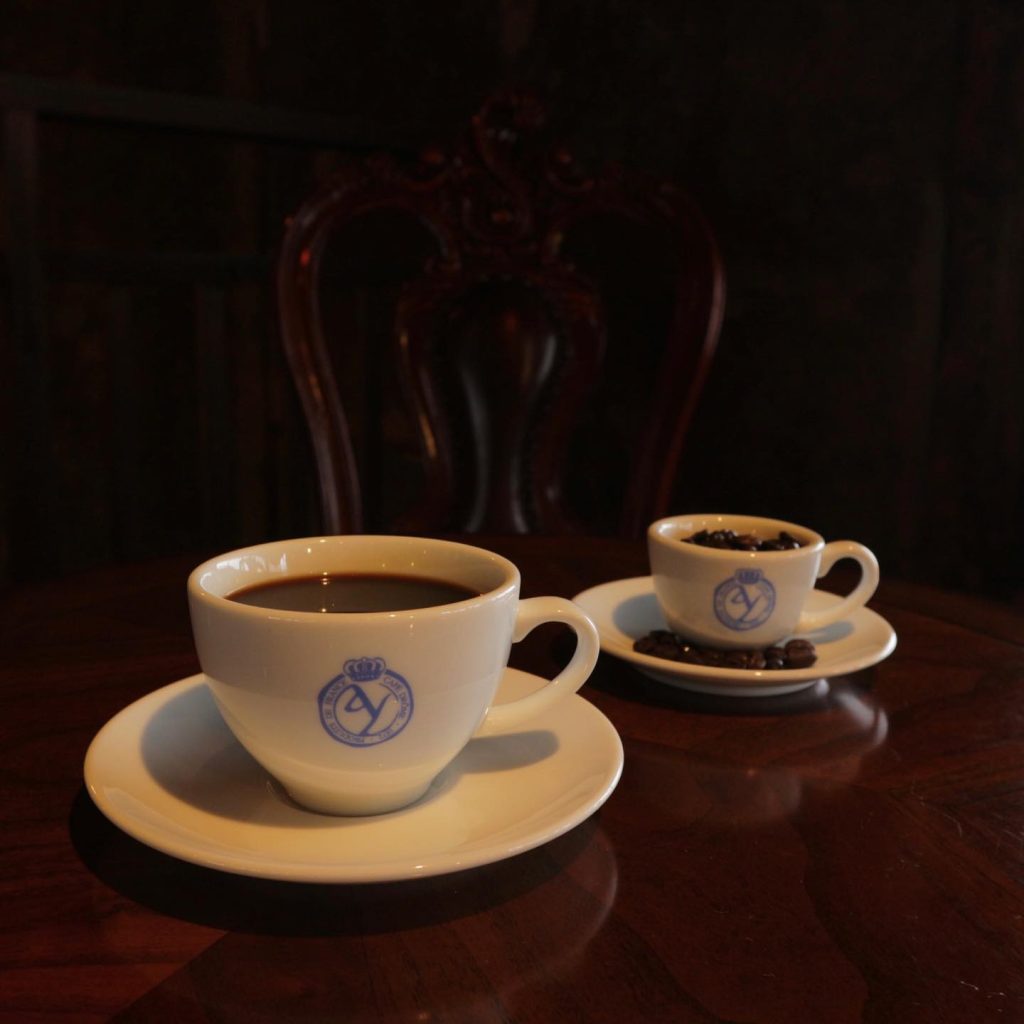
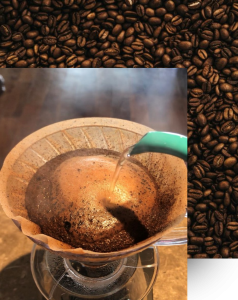
The beans we used are shipped fresh from the roaster, so that the coffee we brew arrives to the customer at the peak of fragrance and flavor.
We never stop studying how to improve our craft.
We keep a checklist to guarantee flavor and quality every day, so that customers can enjoy a delicious and trustworth cup of coffee.
We Care About Local Ingredients!
Gunma has a rich history of miso and flour-based cuisine, including yakimanju, miso oden, okkirikomi and more. In the past, the farming season was very busy, so long-lasting foods were a necessity.
The people of Gunma grew soybeans alongside wheat fields, which allowed them to produce miso and flour. Based on this tradition, we at Café Drôme make Japanese sweets with miso and flour ingredients!
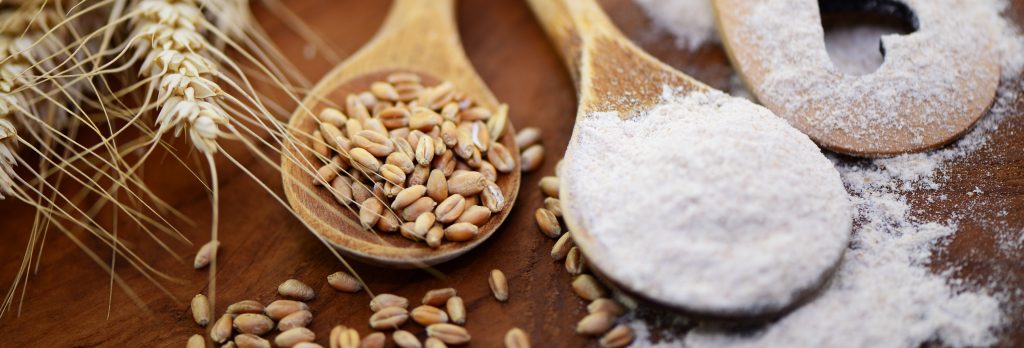
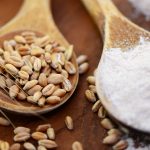
Wheat Flour
Flour produced locally in Gunma
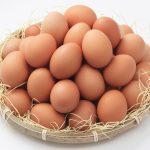
Eggs
Eggs raised with care in the foothills of Mt. Haruna
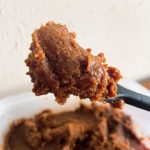
Miso
The manager's handmade miso!
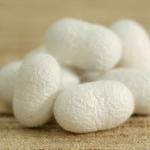
Silk-based Protein
Silk-based protein, produced in Tomioka
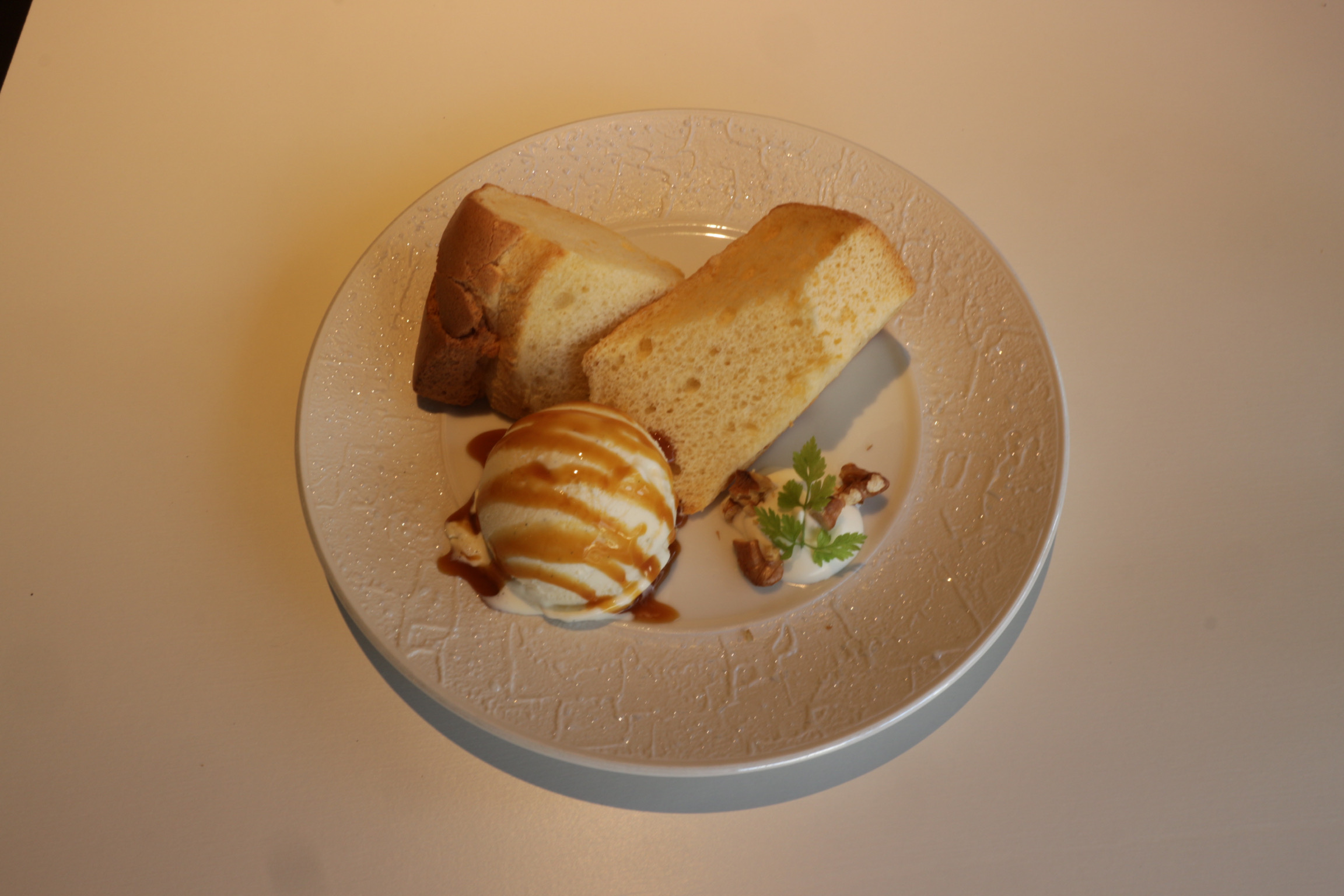
Silk Chiffon Cake
We make chiffon cake using silk-based proteins kneaded into our ingredients and lightly baked. The silk-based protein results in an extra light, extra fluffy texture. As the name implies, this cake is as soft as silk!
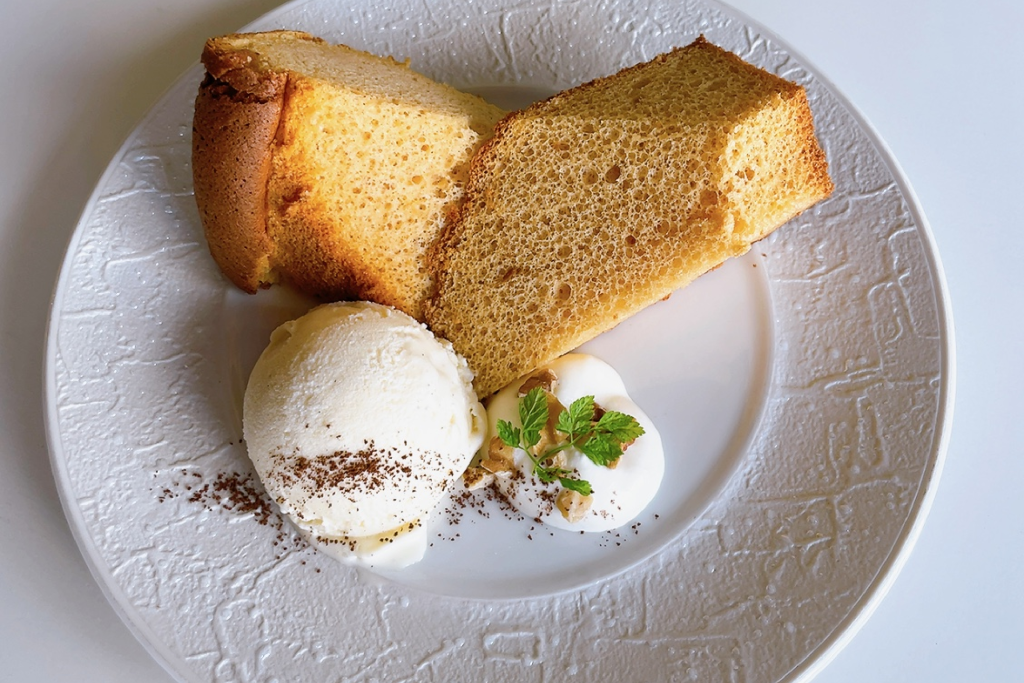
Miso Chiffon Cake
For our miso chiffon, we knead the manager's handmade miso into the ingredients before baking the dough. The resulting combination of miso's earthy taste and aroma, and the sweetness of the cake is a delicious, delicate treat.
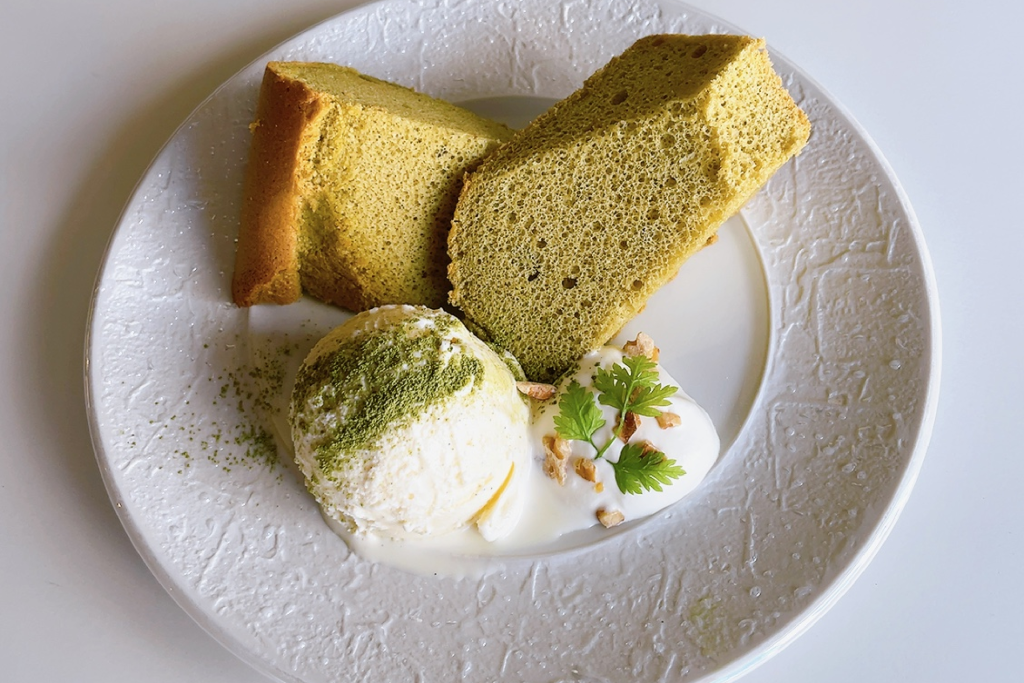
Mulberry Chiffon Cake
For this cake, we knead locally-grown mulberry leaves with our ingredients before baking. The result is a confection with a twist - offering an alternative to matcha-based sweets to accompany your tea or coffee.
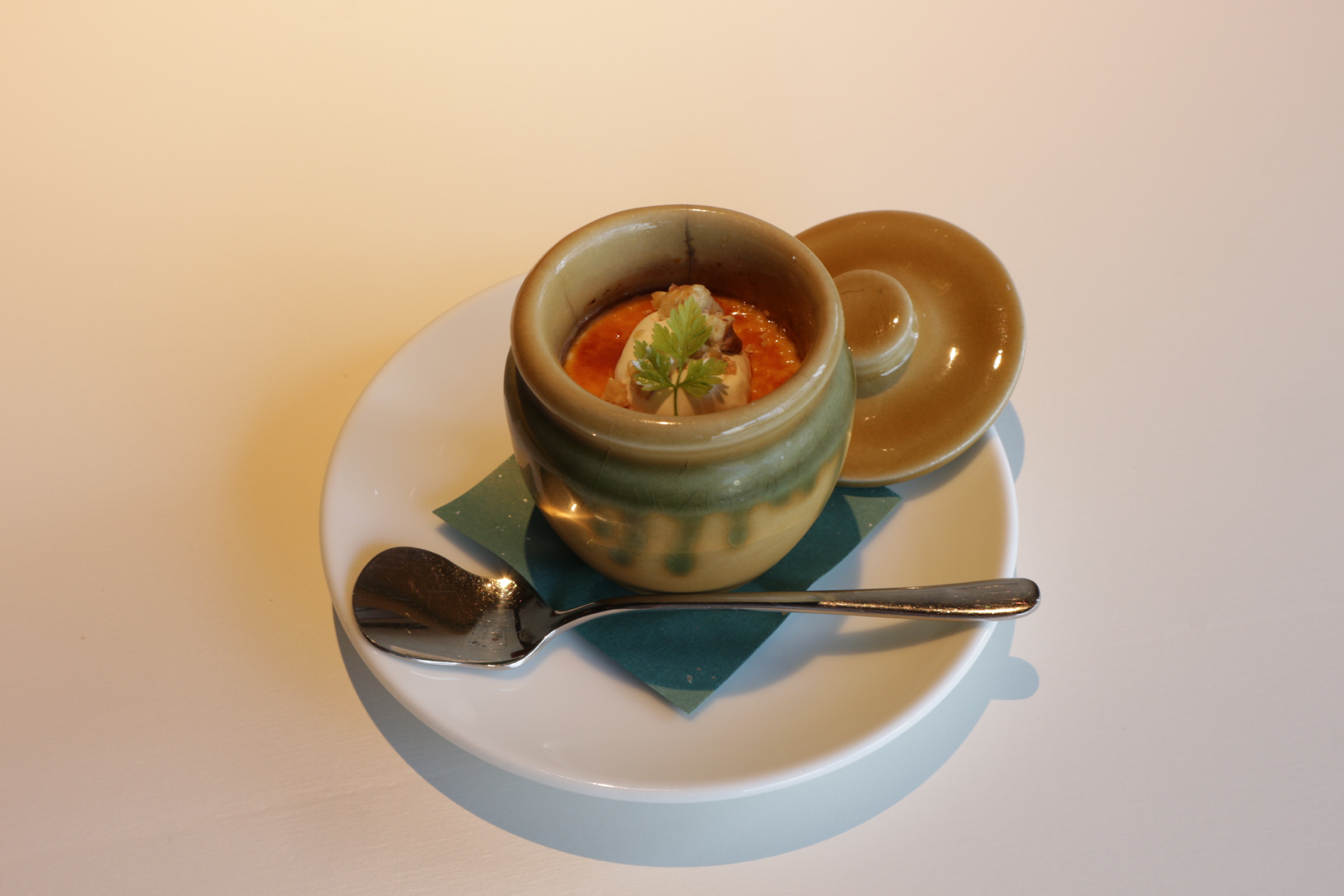
Sokoga Miso Pudding
At the base (soko) of our smooth, creamy pudding desert is a caramel sauce specially-made from Tomioka-produced miso! The special feature of this delicious dessert is the combination of animal-based proteins (eggs, milk and cream) with plant-based yeast (miso).
Tomioka Silk Project
Our chiffon cakes are made using silk-based proteins as part of the Tomioka Silk Project. The Project produces silk-based protein for use as a cooking ingredient while also supporting the local silk farming tradition in Gunma.
- Silk Farms Produce Cocoons
- Tomioka City Purchases the Cocoons
- Silk is Processed into Protein Material
- Silk-based Protein is Distributed to Restaurants
- Customers Purchase End Product
Tomioka Silk Project
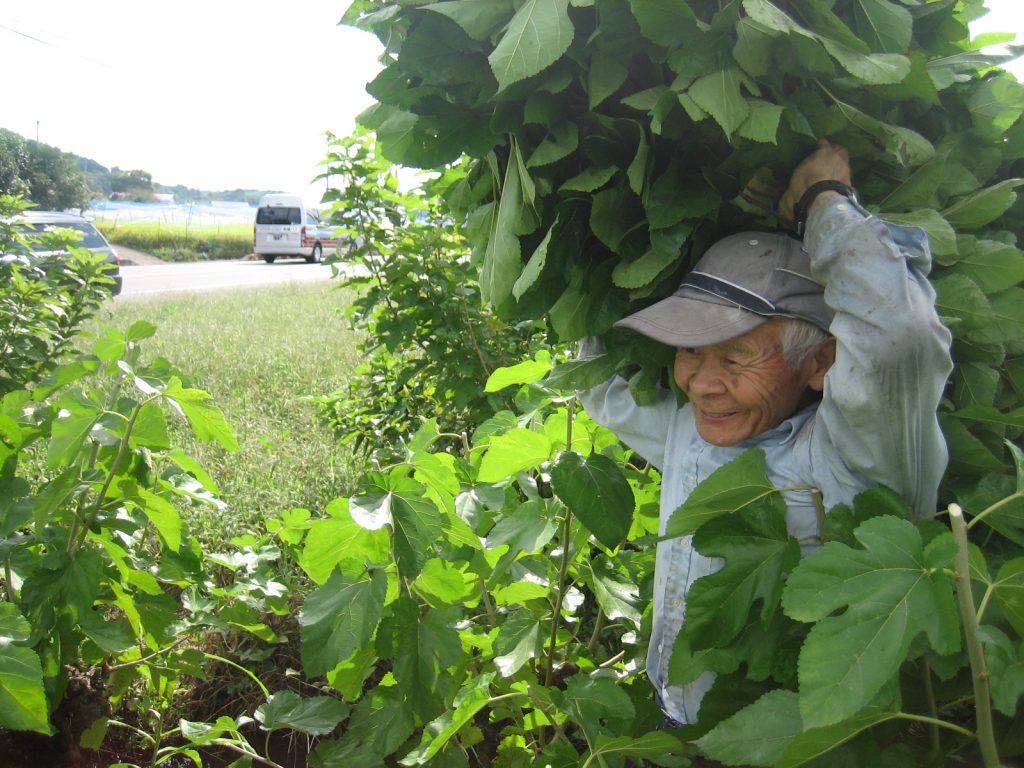
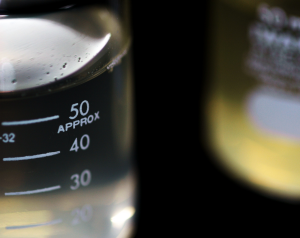
What is Silk-based Protein?
Fibroin is one of the main proteins which can be distilled from processing silk.
Unlike hydrolyzed silk (which produces amino acids and peptides), Fibroin is tasteless, odorless and water-soluble. It can be used in cooking without disrupting the balance, and instead draws out the flavor. It has also been noted as a metabolic aid due to its digestion resistance.
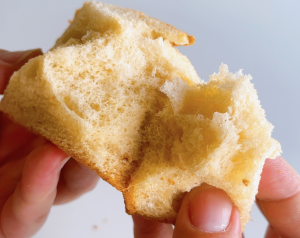
Culinary Benefits of Fibroin
Silk-based protein can be used in cooking for a variety of culinary effects.
In baking, we use silk-based protein to give our cakes a greater sponginess and a longer-lasting freshness!
Examples of texture change
- Adds to the body of udon noodles while making them glossier and smoother to eat.
- Makes rice crackers such as senbei crispier and lighter
- Creates a sweet, melt-in-the-mouth taste in tofu
We want customers to enjoy silk-based products which expand their culinary imagination!
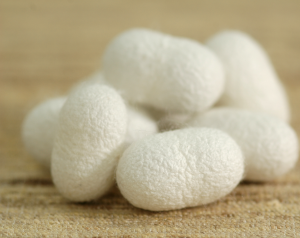
We're Serious about Our Ingredients!
The soluble silk-based proteins we use in our cooking were first developed by Matsuda Silk Factory, brainchild of Takayuki Nagashima from the Tokyo University of Agriculture.
It contains no additives or preservatives. In addition, the silk farms which produce the cocoons used to make silk-based protein are located in Tomioka.
This local process helps to revive and preserve the local industries and traditions. Your patronage helps to revitalize local Tomioka history!
LIKE, SHARE, REPEAT,CONTACT